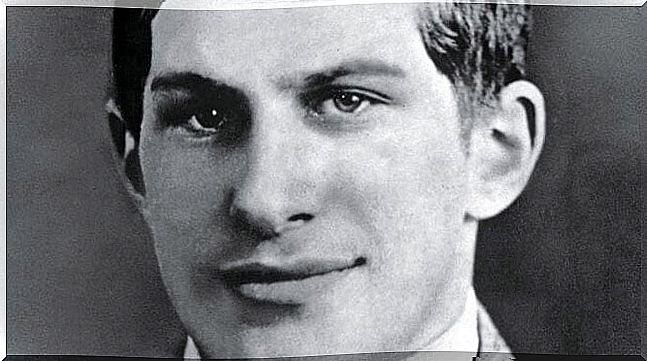The Story Of The Most Intelligent Man In The World

He is considered the most intelligent person in the world, someone with a prodigious mind and whose IQ was between 250 and 300 points. William James Sidis was a human calculator and linguistics genius, someone from whom amazing achievements were expected for being so intelligent, yet there was a pending issue that he never solved and that took him early: sadness.
Imagine for a moment a child who at 18 months could already read The New York Times newspaper . Now imagine him with eight speaking fluently French, German, Russian, Turkish and Armenian, mastering Latin and of course English, their mother tongue. Let’s go a little further and visualize this same 9-year-old creating a new language called “vendegood” that linguists studied and rated as very complete, correct and fascinating.
This child was William James Sidis, the son of two Russian-Jewish immigrants and born in New York on April 1, 1898. Much has been said about him and undoubtedly much more has been written, and as always happens in these cases, reality is often made fiction, data is exaggerated and the biography of a man is novel with the pen of the romantic and the ink of the fantastic, when what we have is a rather crude story. And still, tremendously interesting from a psychological point of view.
The physical and documentary testimonies support a large number of facts. One of them is as simple as it is transcendent: William J. Sidis never had a childhood, he could never enjoy the right to be a child, despite being so intelligent. At just 9 years old, he was accepted to Harvard University and on a cold January night in 1910, at the age of 12, he gave his first conference on the fourth dimension in front of the scientific community and the press of the time.
His parents, a renowned Russian psychologist and one of the first medical doctors of the time, were very clear about their goal: they wanted a genius. They educated their mind by completely forgetting the most essential: their heart, their emotions.

Genetics, disposition, and a highly enabling environment
A life of laboratory and public exhibition
To genetics, there was undoubtedly added an enabling environment, highly stimulating and oriented towards a very specific purpose. His father, Boris Sidis, is known to have used sophisticated techniques – including hypnosis – to enhance his son’s abilities and potential early on.
His mother, for her part, left medicine to, according to her, “model” the child and innovate new teaching strategies. It must be said that William himself undoubtedly also showed a clear disposition towards learning. However, there was something that always marked and traumatized him: exposure to the public and the media.

Parents published academic reports every so often showing the child’s achievements. The press was aware of him, as well as the scientific community. It is known that while he studied at Harvard he suffered daily harassment from the press. After graduating cum laude and leaving academics in awe of his fourth-dimensional theories, he was taken to the University of Houston to teach mathematics, while also initiating a law degree.
William James Sidis continues to be the person with the highest IQ on record to this day. He is followed by the young Terence Tao with an IQ of 225-230, a young Australian mathematician who is currently teaching at the University of Los Angeles.
However, it is very likely that somewhere in the world there are one or more child prodigies, not yet identified, who even exceed these intelligence scores. The truth is that it does not matter, because the figures are just that, figures. The essential thing in these cases is that they be allowed to have a childhood, to be children, to enjoy secure emotional ties where they can fulfill themselves personally in whatever they want, in freedom and without pressure.
Because as we have already seen with this story, sometimes high intelligence is not synonymous with happiness.









